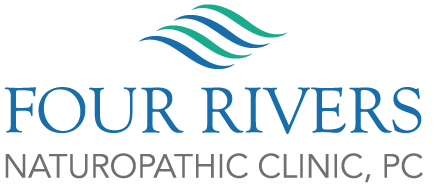The weather has been great lately, but all of us know that soon enough it’s going to be cold and wet. Every year at about this time I start noticing lots of little articles appearing here and there about how to prepare for cold and flu season, how to treat colds and flus if you get them, etc. Well, being someone who doesn’t like being left out, I thought I would throw a few ideas into the ring, hopefully with a different perspective than what we usually see.
Actually, what I want to talk about is what role acute illnesses, such as colds and flus, play in our overall health and how the way we respond to them can actually improve or impair our health in the future. Can you stand it? What I’m actually saying here is that acute illnesses represent an opportunity to build better health!
This is a little bit of a difficult topic because, let’s face it, no one really likes to get sick. It’s hard to appreciate feeling lousy. But if we are seeking to create a high level of health in our lives, to recover from chronic illness, or to prevent the development of chronic illness in the future then I believe that we need to recognize that interacting with infectious organisms actually strengthens our immune system and does so in a way that reduces our risk of more serious immune related diseases later on.
For example, one study showed that individuals who had fewer of the classic childhood diseases, such as measles and chicken pox, had a higher rate of heart disease as adults. (Who would have predicted that!). It has also been proposed by conventional medical researchers that the dramatic increase in asthma is related to a decreased exposure to infectious organisms in childhood. In a similar vane, we know that early childhood vaccination predisposes the immune system towards the development of allergies, including food allergies.
Interestingly, we and other naturopaths we have talked to have also found that when young children go through a high fever they tend to have growth spurts or jumps in psychological development, such as using more complex sentences or becoming more social at school. All of these things suggest that interacting with infectious organisms is vitally important for health.
An analogy is that if you want to be a good runner, you actually have get out there and run. Buying expensive running shoes and sitting on your sofa isn’t going to do it.
An acute infection is, in essence, an invasion of the body by microorganisms, such as viruses or bacteria. Nature’s response is a cascade of events in which the immune system recognizes the invader, organizes an appropriate response and ultimately eliminates the invader and disposes of all the waste products generated by the battle. This is a complicated chain of events, and since most new invaders are a little different than the last one it requires a great deal of intelligence and sophistication on the part of the immune system.
When we treat infections with antibiotics, Tylenol, steroids, or even some natural therapies like Echinacea or very high doses of vitamin C we are interfering with and changing the natural process of immunity. This results in a lazy or inefficient immune system. The immune system needs to be challenged to be healthy and strong.
So how can we deal with infections in a way that keeps our suffering to a minimum while actually enhancing immune function and building stronger and more vital health? Obviously, the answer to that is complex and everyone’s needs are a little different. Here are some general principles that will be helpful in getting you started. If you would like more specific guidance then let us know:
Get enough sleep: (my patients know that I’m sometimes a bit of a broken record about this). If we are low on sleep, our stress hormones run higher which suppresses our immunity. Additionally, immune activity is highest when we are in a resting state. How do you know when you’re getting enough sleep? You wake feeling refreshed and don’t need coffee to get going in the morning!
Do a Fall detox: modern life tends to fill us with compounds that interfere with the optimal functioning of our bodies, including our immune system. Cleaning up our diet and cleansing our systems can really put us in top shape for the winter, and a well functioning immune system can often identify and eliminate infectious organisms before we even know they’re there. (Talk to your naturopath if you want support).
Use therapies that support the optimal functioning of the immune system: many of the more traditional naturopathic therapies, such as homeopathy, hydrotherapy (hot and cold water applications), and short water, juice or broth fasts support an optimal response to acute infections and do so in ways that leave us with a stronger immune system. I have seen patients go from having frequent colds and flus that would last for many weeks to having one or two colds per year which last only a few days using these therapies! The beauty of these types of therapies is that patients tend to maintain the improvements in immunity they have achieved long after they have stopped using the therapies suggesting that their vitality has been increased in a lasting way.
Avoid antibiotics (except in cases of dangerous infections): by destroying microorganisms directly, antibiotics take the work away from the immune system, leading to a “lazy” immune system. In addition antibiotics destroy healthy gut bacteria which actually enhance our immunity. And if that wasn’t enough, antibiotics place an extra load for detoxification on the body, decreasing it’s resilience and healing resources further.
Avoid natural antimicrobials: Echinacea really works, but it does the work for the body, directly inhibiting viral activity and mechanically boosting certain immune functions. Vitamin C doses under about 3,000mg are supportive to immune function and detoxification but high doses of Vitamin C (5,000-10,000mg or more) kill viral particles directly, interfering with the immune process. (Remember, the runner needs to run to become strong).
Avoid fever suppressors: it’s important to remember that our bodies do what they do for a reason. It’s not the virus or bacteria that are causing the fever, but the body itself. Our immune system functions more efficiently at temperatures above normal, while viruses and bacteria function less efficiently. Fever gives the immune system the upper hand and when we suppress fevers with medicines such as aspirin, Tylenol and Ibuprofen we are shifting the odds in favor of the invading organism. We are also impairing our body’s ability to generate a fever in the future. People who achieve high fevers may feel worse, but they get over their infections a lot faster than those who don’t! A word of caution: fevers over 106° F are dangerous and do need to be managed, but they are also rare. If you have a fever higher than 104° it would be a good idea to consult a health care professional (preferably a naturopath in our opinion).
Having written this, it feels like I’ve really just scratched the surface on a very important topic. If you have questions, please post a comment below and I will respond. The bottom line is that there is no magic formula for health. Health results from understanding how our bodies actually work and providing them with what they need so they can function as designed: optimally.
Related Posts:


 Flu Shot or Not?
Flu Shot or Not?
Leave a Reply